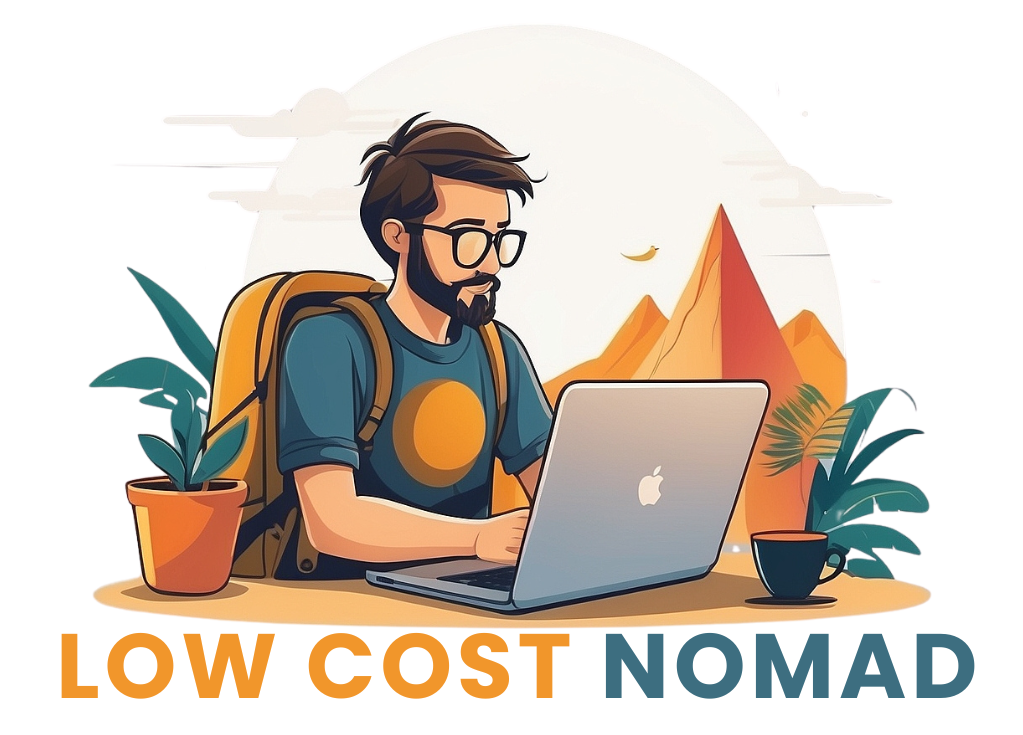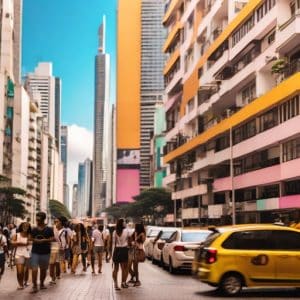The world of work has changed dramatically. More and more people are breaking free from traditional offices, embracing the freedom to work from anywhere. These are the Digital Nomads, and their numbers are growing every year. They travel the globe, running their businesses or working for clients remotely, seeking adventure, new cultures, and a better work-life balance. But while the idea of working from a beach cafe sounds amazing, the reality is that choosing the *right* city makes a huge difference in a digital nomad’s experience. Two of the biggest factors? Affordability and connectivity. You need your money to go further, and you need reliable internet to actually do your job. As we look towards 2025, certain cities continue to stand out as top contenders for those living the digital nomad lifestyle. This article explores some of the Best Cities for Digital Nomads in 2025, focusing on places where you can live well without spending a fortune, and stay perfectly connected to the rest of the world.
What Makes a City Great for Digital Nomads?
Before diving into specific locations, let’s talk about the key ingredients that make a city appealing to someone working remotely. It’s more than just a nice view (though that helps!).
Affordability: Making Your Money Go Further
For many Digital Nomads, especially those just starting out or managing fluctuating income, cost of living is super important. An affordable city means:
- Lower Rent: Housing is usually the biggest expense. In affordable cities, you can find a comfortable apartment or room for much less than in major Western hubs like London or New York. This means more money left over for savings, travel, or fun.
- Cheaper Daily Expenses: Food, transport, coffee, going out – these costs add up. In an affordable city, a delicious meal won’t break the bank, local transport is cheap, and simple pleasures are accessible on a smaller budget.
- Value for Money: It’s not just about being cheap; it’s about getting good value. Can you live comfortably, eat well, and enjoy activities without constantly worrying about your budget?
Finding a place where the cost of living is low allows Digital Nomads to extend their travels, save money, or simply reduce financial stress. It’s a cornerstone of a sustainable nomad lifestyle.
Connectivity: Staying Online and Productive
Reliable internet is like oxygen for a Digital Nomad. Without it, you can’t work. Connectivity involves a few things:
- Fast and Stable Internet: This is non-negotiable. You need good internet for video calls with clients or colleagues, uploading large files, and simply running your online business smoothly. Cities popular with Digital Nomads often have invested in better infrastructure.
- Widespread Wi-Fi: Is Wi-Fi easily available in cafes, restaurants, parks, and public spaces? This flexibility is key for someone who might need to work from different locations.
- Co-working Spaces: These dedicated workspaces offer reliable, fast internet, a productive environment, and often a sense of community. Many Digital Nomad hotspots have a thriving co-working scene.
- Ease of Getting Connected: Is it easy to buy a local SIM card with a good data plan? Can you set up internet in your accommodation without a lot of hassle?
Being well-connected isn’t just about speed; it’s about the ease and availability of staying online throughout the city.
Other Important Factors
While affordability and connectivity are vital, other things matter to Digital Nomads too:
- Visa Situation: How easy is it to stay for a few months or even longer? Are there specific visas for remote workers or friendly tourist visa policies?
- Safety and Stability: Feeling safe is crucial. Political stability also matters for long-term planning.
- Community: Are there other remote workers or expats? A good community makes it easier to make friends, network, and feel less isolated.
- Culture and Lifestyle: Does the city’s vibe match your personality? Is there interesting culture, nature, good food, and activities to enjoy when you’re not working?
- Healthcare: Access to decent medical facilities is important, especially when you’re far from home.
- Transportation: Is it easy and affordable to get around the city? Is it a good base for traveling to other nearby places?
- Climate: While not essential for everyone, many Digital Nomads prefer warmer climates.
Considering all these factors helps paint a full picture of whether a city is truly suited for someone living the location independent lifestyle.
Best Cities for Digital Nomads in 2025: Affordable & Connected Choices
Based on affordability, connectivity, growing infrastructure, and popularity among remote workers, here are some of the top contenders for 2025. Remember that “best” is subjective, but these cities consistently rank high for offering a good balance.
Chiang Mai, Thailand
A long-time favorite, Chiang Mai in northern Thailand is often called the “OG” Digital Nomad hub. It’s been popular for years and still holds its charm and affordability.
Key Features:
- Affordability: The cost of living is incredibly low compared to Western countries. You can rent a decent apartment for a few hundred dollars a month, eat delicious street food for a couple of dollars, and generally live very comfortably on a modest budget.
- Connectivity: Internet is widely available and generally reliable, especially in apartments, cafes, and co-working spaces. There’s a huge selection of cafes with good Wi-Fi and numerous co-working options ranging from budget-friendly to more upscale.
- Community: Chiang Mai boasts one of the most established and active Digital Nomad communities in the world. There are countless meetups, workshops, and online groups, making it easy to connect with others.
- Lifestyle & Culture: It’s a relaxed city with beautiful temples, delicious food, friendly locals, and lots of nearby nature (mountains, elephants sanctuaries). The pace is slower than Bangkok.
- Visa: Thailand has various tourist visa options, and visa runs to neighboring countries are common, though the visa situation can sometimes require careful planning for longer stays.
Things to Consider:
- Smoky Season: Burning season (usually Feb-April) causes significant air pollution, which can be unpleasant and impact health.
- Heat: It can get very hot, especially during certain months.
- Visa Complexity: Staying long-term requires understanding the visa rules or exploring education/volunteer visas if standard tourist options aren’t sufficient.
Chiang Mai remains a top choice for new Digital Nomads and those seeking a highly affordable place with a built-in community.
Medellin, Colombia
Known as the “City of Eternal Spring” for its pleasant climate, Medellin has rapidly become a major Digital Nomad hotspot in Latin America.
Key Features:
- Affordability: While prices have risen with its popularity, Medellin is still very affordable for expats and nomads. Rent, food, and transportation are significantly cheaper than in North America or Europe. You can find modern apartments in nice neighborhoods at reasonable prices.
- Connectivity: Internet speeds are surprisingly good in many areas, especially in neighborhoods popular with foreigners like El Poblado or Laureles. There are many co-working spaces and cafes with reliable Wi-Fi.
- Lifestyle & Culture: Medellin is a dynamic city nestled in a valley, known for its vibrant culture, music (salsa!), friendly people (Paisas), delicious food, and lively nightlife. The climate is consistently mild.
- Community: There’s a large and growing Digital Nomad and expat community, with lots of social events and networking opportunities.
- Transportation: The city has an excellent and efficient metro system, which is rare in Latin America and makes getting around easy and cheap.
Things to Consider:
- Safety: While much safer than in previous decades, petty crime and occasional safety concerns still exist, especially in certain areas. Awareness is key.
- Visa: Standard tourist visas usually allow 90 days, extendable for another 90, totaling 180 days per year. Colombia has introduced a digital nomad visa, making longer stays much easier for those who qualify.
- Language: Spanish is the main language. While more people in tourist areas speak some English, learning basic Spanish is highly recommended.
Medellin offers a fantastic blend of affordability, connectivity, exciting culture, and pleasant weather, making it a highly attractive destination for the mobile worker.
Lisbon, Portugal
Lisbon might be slightly less “dirt cheap” than Southeast Asia or parts of Latin America, but it offers European convenience, safety, and increasingly attractive visa options for Digital Nomads, combined with relatively lower costs compared to other Western European capitals.
Key Features:
- Affordability (Relative): While not the cheapest on this list, Lisbon is more affordable than Paris, Berlin, or Rome. Groceries, local transport, and dining out at local spots can be quite reasonable. Rent has increased, but sharing or living slightly outside the core center can still be good value.
- Connectivity: Portugal has excellent internet infrastructure. Speeds are fast and reliable throughout the city, and Wi-Fi is readily available. There’s a growing co-working scene catering to the international crowd.
- Lifestyle & Culture: Lisbon is a beautiful historic city with a relaxed vibe, stunning views, delicious food (seafood!), fado music, and easy access to beaches. The climate is mild.
- Visa: Portugal was one of the first countries to introduce a specific Digital Nomad visa (D8 visa), allowing remote workers to stay for extended periods (up to a year initially, renewable, and can lead to residency). This is a major plus for those wanting to stay longer legally.
- Safety: Portugal is generally a very safe country.
Things to Consider:
- Rising Costs: Its popularity means that costs, especially rent, have been increasing steadily in recent years.
- Bureaucracy: Dealing with Portuguese bureaucracy for visas or residency can sometimes be slow or confusing.
- Peak Season Crowds: Lisbon can get very crowded with tourists during the summer months.
For Digital Nomads seeking a European base with good connectivity, quality of life, safety, and a clear path for legal residency, Lisbon is a top-tier choice, offering excellent value despite not being the absolute cheapest.
Budapest, Hungary
Budapest, often called the “Pearl of the Danube,” is a stunning city in Eastern Europe that offers incredible value for money combined with grand architecture and a lively atmosphere.
Key Features:
- Affordability: Budapest is one of the most affordable capital cities in the European Union. Rent, public transport, food, and entertainment costs are significantly lower than in Western Europe. You can enjoy a high quality of life without spending a fortune.
- Connectivity: Internet speeds are excellent, among the fastest in Europe. Wi-Fi is readily available. The city has a growing number of co-working spaces, many located in cool, renovated buildings.
- Lifestyle & Culture: Budapest is rich in history, famous for its thermal baths, ruin bars, vibrant nightlife, beautiful parks, and grand boulevards. There’s always something interesting happening.
- Transportation: The public transport system (metro, trams, buses) is extensive, efficient, and affordable, making it easy to get around.
- Community: While perhaps not as massive as Chiang Mai, Budapest has a noticeable and active expat and Digital Nomad community.
Things to Consider:
- Visa: For non-EU citizens, staying beyond the standard 90-day Schengen limit requires exploring options like a D visa for other purposes, as Hungary hasn’t introduced a specific nomad visa yet.
- Language: Hungarian is a complex language, and outside of tourist areas, English proficiency can be limited.
- Winters: Winters can be cold and grey.
Budapest offers a compelling mix of stunning beauty, deep history, fantastic affordability, and great connectivity, making it a strong contender for Digital Nomads looking for a European base with a low cost of living.
Bali, Indonesia (specifically Ubud & Canggu)
Bali, particularly the areas of Ubud (cultural heart) and Canggu (coastal surf/yoga hub), has been a magnet for Digital Nomads for years, drawn by its unique spiritual vibe, beautiful nature, and vibrant lifestyle.
Key Features:
- Affordability: While parts of Bali, especially Canggu, have become more expensive due to popularity, it remains relatively affordable compared to Western costs, particularly outside the main trendy spots. Food can be very cheap if you eat local, and accommodation varies widely in price.
- Connectivity: Internet connectivity has improved significantly in popular areas like Ubud and Canggu. There are numerous cafes with good Wi-Fi and a huge number of co-working spaces (some very high-quality) specifically catering to remote workers.
- Lifestyle & Culture: Bali offers a unique blend of spiritual culture, stunning rice fields, beaches, surfing, yoga, and wellness activities. The work-life balance often leans heavily towards life here.
- Community: The Digital Nomad community in Bali is massive and incredibly active, especially in Ubud and Canggu. It’s very easy to meet like-minded people through co-working spaces, events, and social media groups.
- Visa: Indonesia now offers a longer-term visa (the C211A or the upcoming Second Home Visa which has a high financial requirement but allows longer stays) that can facilitate longer stays for Digital Nomads, moving beyond the standard 30 or 60-day tourist options.
Things to Consider:
- Infrastructure Issues: Traffic can be a major problem, especially in Canggu. Public transport is limited; scooters are the main way to get around.
- “Bali Belly”: Travelers can sometimes experience stomach issues.
- Cost Creep: Popular areas are becoming less affordable as demand increases.
- Visa Nuances: While options exist, navigating the visa rules for longer stays requires careful planning and understanding.
Despite some challenges, Bali continues to attract Digital Nomads looking for a unique lifestyle, strong community, and a tropical backdrop for their remote work.
Mexico City, Mexico
As a sprawling, vibrant metropolis, Mexico City offers incredible culture, food, and relatively low costs, attracting a growing number of Digital Nomads looking for a big city experience in Latin America.
Key Features:
- Affordability: Mexico City is very affordable, especially for a capital city of its size. Rent in popular neighborhoods like Roma or Condesa can be higher, but living slightly further out or finding roommates makes it very manageable. Food is incredibly cheap and delicious, and transport is very affordable.
- Connectivity: Internet is generally good and improving, especially in areas with many remote workers. Co-working spaces are plentiful and range in price. Cafes often have reliable Wi-Fi.
- Lifestyle & Culture: Mexico City is packed with museums, art galleries, historical sites, beautiful parks, fantastic restaurants, and a non-stop cultural scene. There’s an energy here unlike anywhere else.
- Community: There’s a large and welcoming Digital Nomad and expat community, particularly in neighborhoods like Roma, Condesa, and Polanco.
- Food: The food scene, from street food to high-end restaurants, is world-class and incredibly affordable.
- Visa: US and Canadian citizens get 180 days visa-free as tourists, which is generous. Other nationalities should check specific requirements. Mexico is also working on a temporary resident visa that could be suitable for remote workers.
Things to Consider:
- Size & Traffic: It’s a huge city, and traffic can be intense, leading to long commute times.
- Air Quality: Air pollution can be an issue, particularly in certain seasons.
- Safety: Like any major metropolis, safety varies by neighborhood. While areas popular with expats are generally safe, awareness is necessary.
- Earthquakes: Mexico City is in an active seismic zone.
Mexico City offers a rich, complex, and exciting experience for Digital Nomads who love big cities, culture, and amazing food, all within a very affordable price range.
Tbilisi, Georgia
Georgia has actively courted Digital Nomads with its favorable visa policies and low cost of living. Its capital, Tbilisi, offers a unique blend of old-world charm and growing modern amenities.
Key Features:
- Affordability: Tbilisi is very affordable. Rent, food, utilities, and transport costs are significantly lower than in most European countries.
- Connectivity: Internet speeds are generally good and reliable, especially in the city center. The number of cafes with good Wi-Fi and co-working spaces is increasing.
- Visa: Georgia has one of the most generous visa policies globally for many nationalities (around 95 countries!), allowing entry and stay for up to a full year as a tourist. They also launched a specific “Remotely from Georgia” program (though the standard one-year tourist visa is often sufficient for many). This is a major draw for Digital Nomads seeking long-term stability in one place.
- Culture & Lifestyle: Tbilisi is a fascinating city with ancient history, unique architecture, delicious food and wine, and incredibly hospitable people. It’s a great base for exploring the rest of Georgia’s stunning mountains and coastline.
Things to Consider:
- Language: Georgian is the local language. While younger generations and those in tourism might speak English or Russian, communication can sometimes be a barrier.
- Infrastructure: While improving, infrastructure outside the core city center can be less developed.
- Bureaucracy: Setting up things like banking can sometimes involve navigating bureaucracy.
Tbilisi stands out for its welcoming visa policy and extreme affordability, combined with a unique cultural experience, making it an increasingly popular choice for Digital Nomads looking for something a bit different.
How to Choose YOUR Best City
While the cities listed above are popular for good reasons, the “best” city for you depends on your personal needs and preferences. Here are some things to think about:
- Your Budget: How much can you realistically spend each month? Research detailed cost-of-living breakdowns for potential cities to see if they match your budget.
- Your Work Requirements: Do you need super-fast internet for heavy uploads, or is reliable standard speed enough? Are you doing lots of video calls? Do you prefer working from home, cafes, or co-working spaces?
- Visa Needs: How long do you plan to stay in one place? Are you comfortable with visa runs, or do you need a longer-term visa option like those offered in Portugal or Georgia? Check the specific visa rules for your nationality.
- Climate Preferences: Do you love the heat, or prefer mild weather? Can you handle cold winters or humid summers?
- Language Skills: Are you willing to learn a new language, or do you need a city where English is widely spoken?
- Lifestyle & Interests: Do you prefer a bustling metropolis or a more relaxed town? Are you into history, nature, nightlife, food, sports, or something else? Does the city offer what you enjoy doing in your free time?
- Community: How important is it for you to be surrounded by other Digital Nomads or expats? Some cities have massive communities, while others require more effort to connect.
Take the time to research cities that interest you, read blogs from people living there, watch videos, and if possible, visit for a shorter trip first before committing to a longer stay.
Tips for Living as a Digital Nomad in These Cities
Once you’ve picked a potential city, here are some practical tips to help you settle in and make the most of your Digital Nomad adventure:
- Find Suitable Accommodation: Use platforms like Airbnb, Booking.com, or local rental websites. For longer stays, look for monthly discounts or consider local real estate agents once you arrive. Join local expat/nomad Facebook groups – people often post available rooms or apartments.
- Get Connected Immediately: Buy a local SIM card at the airport or a local store right away. Data plans are usually very affordable in these cities.
- Explore Co-working Spaces: Even if you plan to work from home or cafes, try out a co-working space for a day or two. They offer reliable internet, a productive atmosphere, and are great places to meet people.
- Join Local Digital Nomad/Expat Groups: Search on Facebook and Meetup.com for groups in your city. These are invaluable resources for asking questions, getting recommendations, and finding social events.
- Understand Local Transport: Figure out the bus, metro, or tram system. Use ride-sharing apps if available. Get a local perspective on the best ways to get around.
- Manage Your Finances: Look into international banking options or transfer services like Wise (formerly TransferWise) or Revolut to easily access your money and make payments or withdrawals in local currency with low fees.
- Prioritize Safety: Be aware of your surroundings, especially in busy tourist areas or at night. Research common scams or safety issues in your specific city.
- Embrace the Culture: Try the local food, learn a few phrases of the local language, participate in local events, and be respectful of local customs. This will enrich your experience significantly.
- Stay Productive: Establish a routine. Find your ideal workspace (cafe, co-working, home). Manage your time effectively to balance work with exploring your new city.
Conclusion
The Digital Nomad lifestyle offers incredible freedom and opportunity, allowing you to combine work with travel and cultural immersion. Choosing the right city is a key step in making this lifestyle sustainable and enjoyable. As we look towards 2025, cities like Chiang Mai, Medellin, Lisbon, Budapest, Bali, Mexico City, and Tbilisi stand out for their compelling blend of affordability and connectivity, plus vibrant communities and interesting lifestyles.
Finding the Best Cities for Digital Nomads in 2025: Affordable & Connected means balancing your budget with reliable infrastructure, while also considering factors like visa options, safety, and the local culture that resonates with you. The options are diverse, spanning continents and offering unique experiences.
Whether you’re a seasoned remote worker or just starting to dream of working from anywhere, hopefully, this guide provides a great starting point for your research. Do your homework, consider what matters most to you, and take the leap. The world is your potential office, and with careful planning, you can find the perfect spot to thrive as a Digital Nomad.



